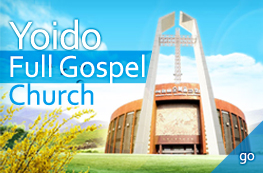On March 13, the Refo500 International Forum, hosted jointly by the Kukmin Cultural Foundation and Kukmin Daily, made it clear that Reformation spirituality continues to be valid in the age of AI.

Rev. Dr. Konrad Raiser (Former Secretary General of the World Council of Churches, Honorary Professor of University of the Ruhr in Bochum), who presented the keynote lecture, said, “The arrival of the artificial intelligence age and the wave of globalization have given rise to conflicts between cultures and a spiritual crisis,” and emphasized, “The church must take the 500th anniversary of the Reformation as an opportunity to re-establish the Protestant principle.” He said, in the light of Paul Tillich’s theology, “The Protestant principle is rooted in the central insight of the reformation as expressed in the affirmation of the free gift of God’s grace through justification by faith alone… In view of the cultural conflicts in the globalized world, the churches should use the anniversary celebrations as an occasion to re-appropriate the protestant principle as a dynamic force, to search for a transformed embodiment of grace in the contemporary situation of cultural conflict and to contribute to the shaping of a new ‘culture of life.’”
Raiser explained, “The contemporary conflicts in many parts of the world regarding the impact of modernization and globalization constitute a fundamental challenge to the dominant Western culture and its indirect roots in Protestantism…. The issue becomes even more confused by the fact that we are confronted with a new social embodiment of Christianity in the rapid spread of neo-pentecostal and charismatic movements which in spirituality and organizational praxis have adapted themselves to the cultural dynamic of the globalized world. Some consider these movements as a manifestation of a ‘new reformation.’”
He also spoke about a radical renewal of the Protestant church, quoting from the “Radicalizing Reformation” project. “Our churches, congregations, and individual Christians have often become complacent and complicit with the established status quo and have lost their critical-prophetic power to protest, resist, and change what is occurring… We must return to Luther’s thought and legacy, as well as standing decidedly against other things he said and did, if this is to become a kairotic time of transformation today.”
Raiser closed his lecture with a question to the churches of the Reformation in Germany as well as Korea and the world: “Is the force of renewal and transformation, which once originated from historic Protestantism, still alive 500 years later as a force of continuing reformation (semper reformanda) in the service of God’s world?”

The forum continued with practical reform ideas for the Korean church and society. Lee Sang-hwa (Secretary-General, Korean National Association of Christian Pastors) summed up the results of the survey on ‘Opinions of Protestant believers and pastors for reformation of church and society’ by Kukmin Daily, and suggested 10 reform tasks: reform of the church’s secularization and materialism, reform towards a public church, reform of pastors’ qualifications, reform of the church’s lack of communication, reform of the polarized church, reform towards union and unity of the Korean church, reform of Christians toward practice rather than knowledge, reform towards an open church communicating with society, reform of the church towards social service, and reform of the church as a leader for peaceful reunification.
President Choi Gab-jong of Baekseok University pointed out that on the other side of aberrant conduct by the Korean church lies the distorted Gospel, and, therefore it is crucial to restore the true meaning of evangelism. Choi said, “We need to restore the well-being of the Korean church by teaching the Kingdom of God and the Gospel, including its ethics.”

Presentations related to social reform were made by President Yim Sung-bihn (Presbyterian University and Theological Seminary) and President Roh Se-young (Seoul Theological University). President Yim said, “The constructive role of the church in building the common good in society begins and ends with a ‘churchlike church.’ To overcome congregationalism and to be together with the local community and the social community, the Korean church must devote itself more to the ministry of service.” President Roh said the Korean church must be a mediator, communicating with the world like the prophets in the Old Testament, who were messengers for the transformation of society in their time.”
Reporter Sangmok Shin (smshin@kmib.co.kr), with Yeara Ahn-Park (yap@kmib.co.kr)
Photo by senior reporter Kang Min Seok
Original Article in Korean:
[Refo500 국제포럼] “종교개혁 정신, 인공지능 시대에도 생명의 문화 이끌 동력”: 콘라드 라이저 교수 주제 강연



